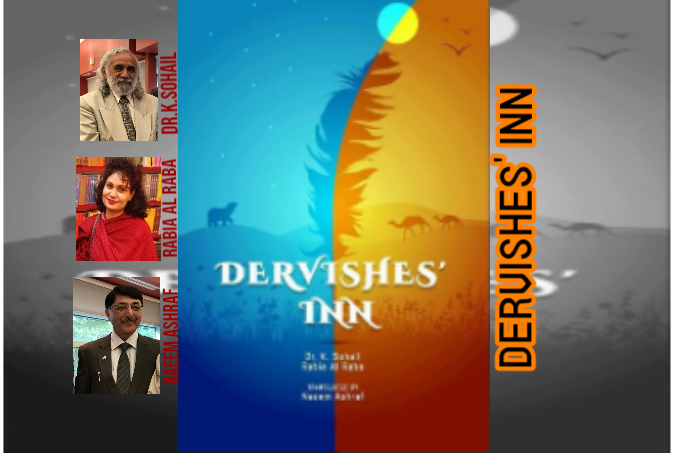Prologue
The foundations of all contemporary knowledge and collective wisdom held by humanity were laid on ancient translations. Anthropologists claim that what we know today was translated by someone, somewhere centuries ago. In Urdu Literature, translations occupy a good space as we see fiction and poetry translated from Greek, French, Chinese, German, Russian, English, Persian, Sanskrit and Hindi. Translations break the language barriers and in a way transfer the cultures. But unfortunately translators are not given due place on the canvas of literary arts.
Translating a piece of literature from a local language to a global language is like digging a link-canal to connect a smaller river to a deeper and wider one. The translator must have a good knowledge of both languages including the vocabulary, idioms and phrases. Like a civil engineer who must have sound knowledge of soil, lay of ground and construction before digging a link-canal. I do not claim mastery over Urdu and English languages. However, I own a little experience of translating over a hundred Urdu short stories into English. These are contained in three books namely: ‘Trespass’, ‘Cliché’ and Sweetheart. Trespass has already been published by Sang e Meel Publications Lahore in 2016 and the other two books are under publication in Ireland and Pakistan respectively. ‘Dervishes’ Inn’ would be my fourth milestone. I have enjoyed this the most.
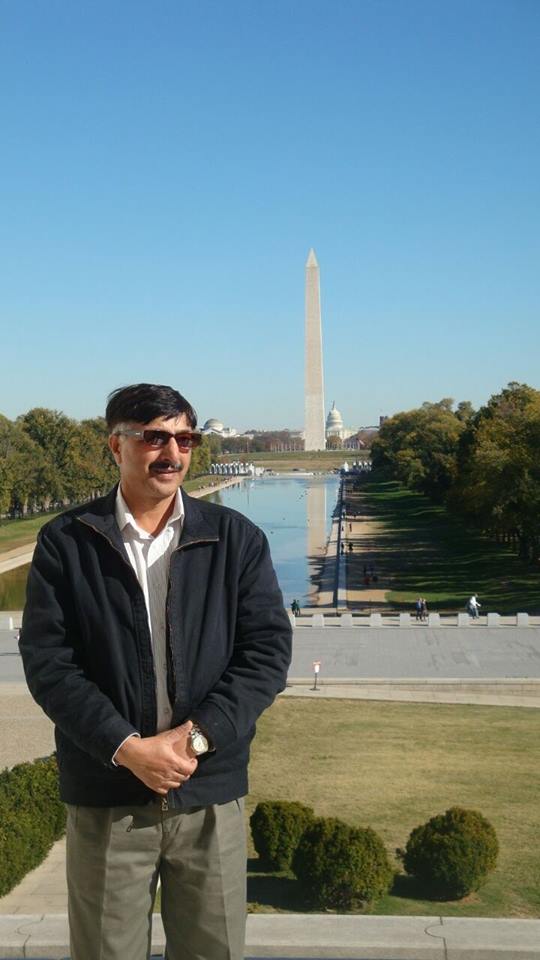
I took five months to translate these letters. The letters have been written in third-person format where Dervish and Rabia are two characters of the story cum creative discourse. Dervish is a poet, writer, psychotherapist and a scholar. He is a secular and liberal person who lives in the West. Whereas, Rabia is an eastern woman who is an established name in Urdu story writing. She is mentally liberal and to some extent secular but regards eastern tradition more by default than by design. Impressed by Islamic mythological character Rabia Basri, Rabia also feels in love with Prophet Joseph of Abrahamic lineage. Two co-writers have tangent views about man-woman relationship, friendship, psyche, spirituality and religion. Dervish always follows a scientific approach to see and resolve the problems of life, whereas Rabia takes spiritual and religious line to highlight the issues related the eastern culture. Contrast of opposing world views is what makes the discourse interesting and colorful.
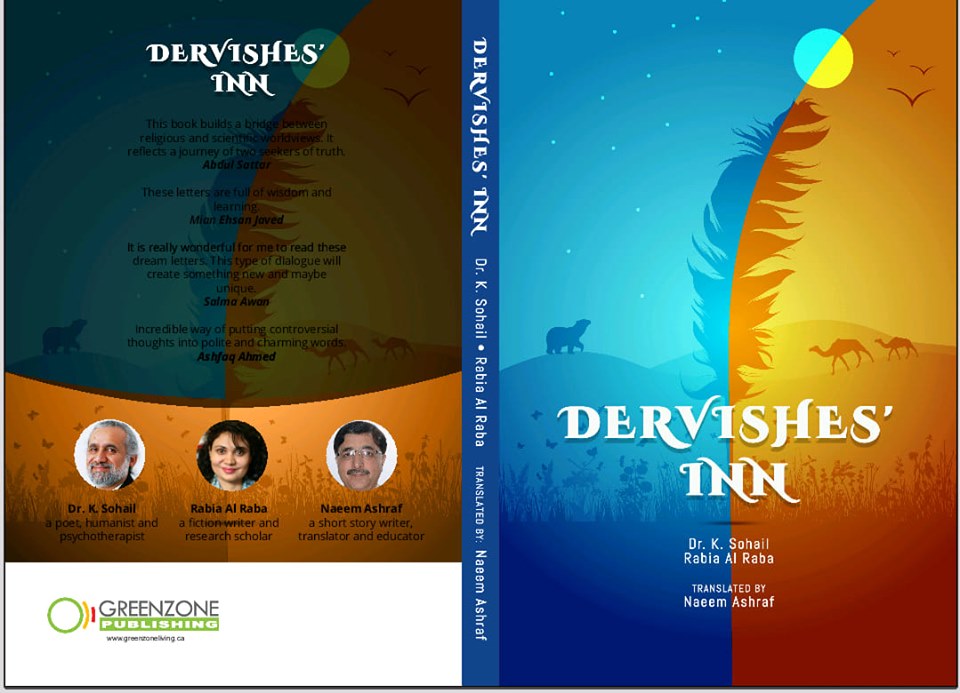
The genre of letter fiction in Urdu literature can be traced back to Ghalib Kay Khatoot or Makateebe Ghalib but these were published as monologue. The letters of Allama Iqbal to Atya Faizi were published but again as one-way traffic. Letter writing does occupy a reasonable space in Urdu Literature but mostly we see collections of monologues. Any literary exchange or two way traffic of more than a dozen letters is nonexistent in Urdu, at least in past hundred years. We may say that unfortunately a beautiful genre of Urdu Literature has been buried under the dust of literary history. Revolution in information technology has also tarnished the very taste of letter writing.
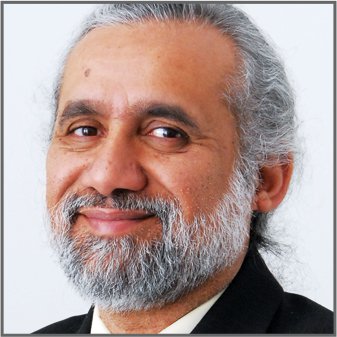
In such an ambience reviving letter writing and revitalizing Letter Fiction is no less than revamping the literary culture and creating a history. These letters what the authors call Dream Accounts is a great venture and perhaps the only literary project of 21st Century. Both writers have candidly spoken their respective truths about religion, history, literature, love, sex, marriage, friendship, man-woman relationship, psychology and spiritualty.
My five months long journey of translation was aimed at connecting foot prints of two creative travelers to build an easy trail for truth seekers across the globe. It commenced in November last year and ended in April this year. I came across diverse land of Eastern and Western culture, the mountains of research, the jungles of knowledge, desert of solitude and rivers of wisdom on my way. On my way when I got tired I took the slumber of beautiful poetry to refresh and refit for upcoming travel. My march was hard in the beginning but became smooth after crossing few hills of disorientation as Rabia on her way had often swayed between conscious and subconscious minds. Then there were days when I thought Rabia had lost the direction, so I had to bring her back through my map of translation and compass of articulation. Dervish who was leader in the journey always moved ahead. On covering certain distance, he would sit on the rock of affection and smile at me. I would forget my rough time and take the next leap.
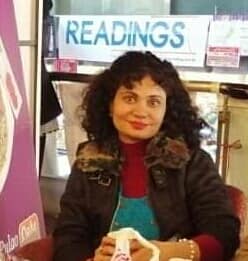
Towards the end of the journey Dervish took me to a cottage of nostalgia in an isolated canal bank of mother’s love. There Dervish handed me the precious gifts of two poems Motherland is Gloomy and Old Eyes. It freshened me to move further to traverse left over journey. During the last leg of my march I remained in the trance of both poems especially The Old Eyes for quite some time. The destination was nearing. I was now scaling the plateaus of transformation. It enhanced the speed. I enjoyed the clarity of mind and flow of thoughts coming from Dervish especially Green Zone philosophy, connection of creativity, insanity, and spirituality. The essence of true beauty, friendship and deep love changed my world view about these important aspects of life. Such relevant yet delicate aspects of life make this book worthy of a serious reading than just a bedtime book.
I feel indebted to Rabia for introducing me to Doctor Khalid Sohail who brought a healthy and creative change in my literary life. Thank you Rabia.
I find no words to thank Doctor Khalid Sohail for affording me an opportunity not only to translate a historical book of letter fiction but also getting it published from Canada. He is a living example of what Bertrand Russell calls the ‘best life’. In his words: “The best life is always inspired by love and driven by knowledge. ‘Dervishes Inn’ is another feather in his cap.
Through this humble effort of translation this creative, meaningful and thought-provoking dialogue will now be available to English readership across the globe. I wish more writers, poets, artists, philosophers and scholars make their pen friends and embark upon healthy discourse by writing such philosophical, creative and literary letters.
Happy reading!


